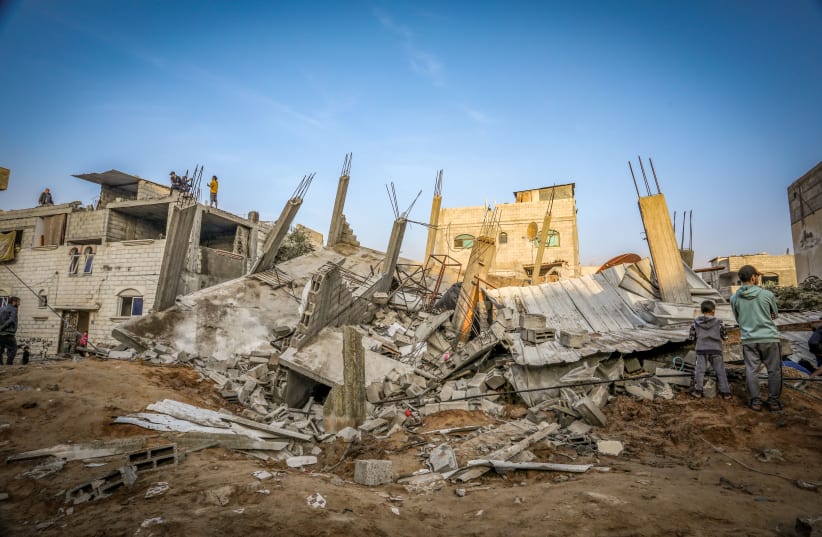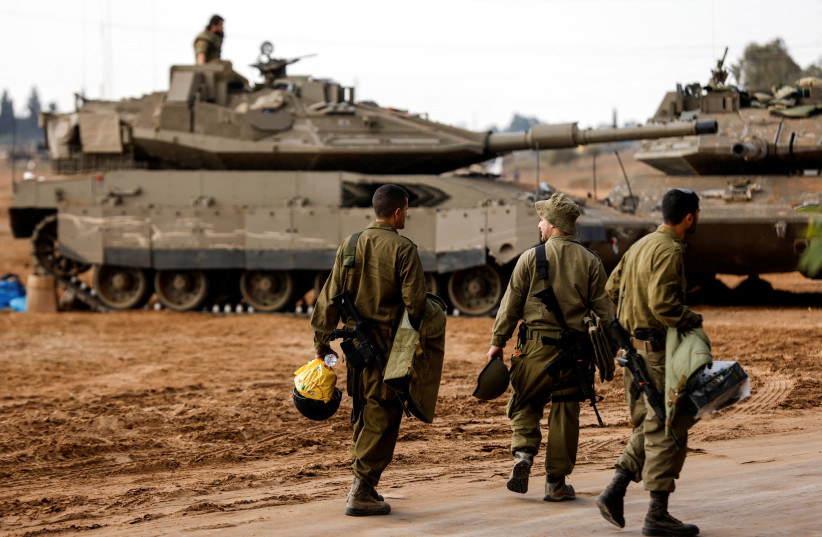NIR ZOAREZ

The Simchat Torah attack caught Israel at its most difficult social moment since the establishment of the state. Society was divided into two hostile camps. At times it felt like a civil war over everything in our society. We split into subgroups with not only different interest, but also a different set of values and different perceptions of the common good.
We not only lost the ability to speak to each other but also the will. We told ourselves we were
Israeli soldiers walk past Israeli tanks near Israel's border with the Gaza Strip, in southern Israel October 15, 2023.

Then came the attack. The shock, the shudder, the thousands of victims, the kidnapped, and the displaced Israelis – we put aside our differences and mobilized for one another.
This feeling swept all sectors of society. Emergency initiatives and donation distribution centers were established by people on the left and the right; the center and the periphery; Ashkenazim, Sephardim, and Mizrahim; conservatives and liberals; in the Bedouin settlements and in ultra-Orthodox society.
Israel came together for emergency initiatives
More reserve soldiers than the army could accommodate reported for duty. More recruits than the army could accommodate enlisted for reserves. They fought, were wounded, and killed – shoulder to shoulder.
But the nature of such efforts is that they are short-lived. People are returning to work, to routine, and to everyday hassles.
Life wins, and that’s a good thing. But with the return to life we also find ourselves returning to disputes. Every national issue has become political again.
Once again, we are splitting into our own particular camps and disguising this as patriotism. The potential damage this time, however, is much greater, due to the intensity of the disaster and the depth of the crisis.
The grief and raw emotions may contribute to exponentially deeper polarization. The justice of each side becomes righteousness. No one wants to entangle themselves with the other side, no one wants to give up their ground. Political life is once again becoming a zero-sum game.
However, the majority of Israelis do not want to return to the divisiveness. They remain in an atmosphere that celebrates unity. Centrist parties are getting stronger in every poll. But politics, the media, and social media discourse all have their own dynamics.
The internal rifts are present in full force on these platforms. It is good to demand change from the government; it is also permissible to demand a change of government. But each of us has a responsibility in the circles that we take part in, at work, in our community, and on the street.
A discourse dedicated to unity does not mean the absence of real differences.
The questions about Israel’s constitutional or legal structure, as well as questions regarding checks and balances, are critical and real.
Demanding an investigation into the failures of October 7 and holding a poignant public discussion on its causes is not something that should separate the Right from the Left.
But we have to discover anew the space where our most painful disputes take place while ensuring that no one is excluded and that no one abandons our mutual commitment to the framework of civil debate. There is no doubt that we are capable of this.
October 7 was the biggest shock that Israel has experienced in decades, perhaps since its founding. This disaster could divide us even more. But we can also turn it into an opportunity for renewal and an inclusive perception of the common good. This, more than any military achievement, will be the real victory over Hamas.
No comments:
Post a Comment